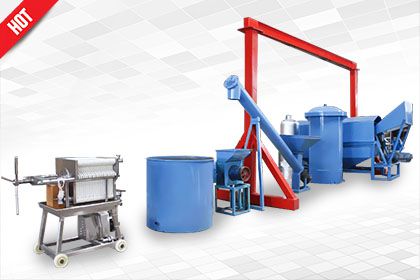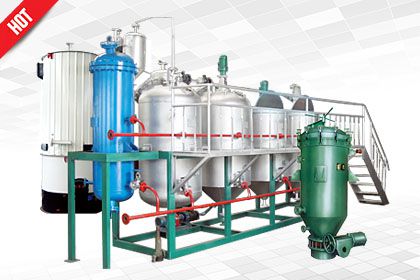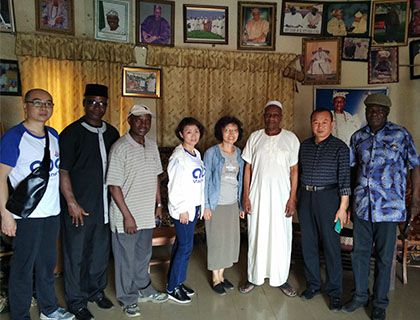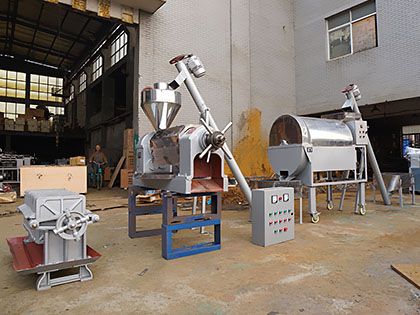Setting up a palm oil milling plant in Indonesia can be a lucrative venture, considering the country's status as the largest palm oil producer in the world. However, embarking on such a palm oil processing project requires careful planning and a thorough understanding of the costs involved.

Provide Palm Oil Milling Plant Turnkey Solutions For Our Clients
In this comprehensive guide, we will take you through a step-by-step analysis of the expenses associated with establishing a palm oil milling plant in Indonesia. This detailed breakdown will equip you with the essential knowledge needed to make informed decisions. (Reference Reading: Cost of Setting Up Palm Oil Mill in Nigeria>>)
But if you already have a clear question about the cost of building a palm oil mill, contact us directly!
[Maximizing Returns] Costs Analysis of Setting Up Palm Oil Milling Plant in Indonesia

1-10tons/day Mini Palm Oil Milling Plant For Sale
Step 1: Cost of Land Acquisition and Preparation
The first critical step in establishing a palm oil processing plant is to obtain suitable land, the cost of which varies according to location, soil quality and accessibility. In general, prime agricultural land suitable for palm oil cultivation may cost between US$2,000 and US$5,000 per hectare in Indonesia.
In addition, budget for land clearing and preparation, which may involve clearing existing vegetation and leveling the terrain. The estimated cost of land preparation ranges from $500 to $1,500 per hectare, depending on the complexity of the task.
Step 2: Cost of Palm Oil Milling Factory Infrastructure
The establishment of reliable infrastructure is essential for the smooth operation of a palm oil mill. Consider the cost of constructing the palm oil mill building, and installing basic utilities.
Invest in reliable water and electricity infrastructure. A reliable water source is essential for the processing stage, while electricity is needed to power the processing equipment. Allocate funds to purchase backup generators to ensure uninterrupted operation.
Small Tips: Mature industrial parks can be chosen for factory investment and construction. Compared to personal land, industrial parks provide complete and well-maintained infrastructure such as roads and drainage, safety and availability/established electricity and water supply.
Step 3: Costs of Palm Oil Processing Machinery in Indonesia
Key palm oil production equipment includes sterilizers, digesters, threshers, oil presses and clarification equipment. Machinery costs can vary widely depending on its capacity and technical features. It is also important to consider that differences in production process flows will affect the equipment required.
-
What is your raw material? Fresh palm fruit, palm kernel or crude palm oil? The production process and processing equipment are different for red palm oil and palm kernel oil. If the product you want to produce is refined palm oil, you also need to buy refining equipment.
There is also further processing equipment:
Palm oil fractionation equipment
Palm kernel extraction machine
Palm oil refinery plant machine
-
How many tons of palm oil do you want to produce per day in your palm oil mill? mini small medium large? 1-10tons/day? 20-30t/d? More than 30TPD? A small palm oil mill plant may cost around US70,000, while a large palm oil manufacturing plant may cost more than $1 million.
ABC Machinery: Provide Customized Palm Oil Process and Factory Layout Design, Enjoy One-Stop service
At ABC Machinery, we are committed to providing you with superior palm oil processing solutions that are designed to achieve optimum production efficiency through customized process flows and plant layouts. We are a one-stop shop for our customers, ensuring that every step of the process is taken care of from initial planning to final implementation.

Best Palm Oil Milling Machinery Manufacturer
Step 4: Cost of Labor and Management
Hiring skilled and experienced labor is crucial for the efficient operation of palm oil extraction plants. Plan the recruitment and training of plantation workers, machine operators, and management personnel. Indonesia's labor costs are generally lower than many other countries, but skilled workers may require higher wages.
Based on installing and debugging the palm oil milling machine, ABC Machinery will provide personnel operation training for the client company to reduce personnel training costs.
Step 5: Cost of Regulatory Compliance and Licensing
Navigating the complex regulatory landscape is crucial for any business in Indonesia. Ensure compliance with environmental regulations, land-use permits, and other relevant laws governing the palm oil industry. Budget for legal consultation and fees associated with obtaining the necessary licenses.
Step 6: Operational Costs
Daily operating expenses include raw material procurement, transportation, and maintenance of machinery and infrastructure.
- Raw material procurement: Develop a comprehensive budget for sustained costs, including fertilizers, pesticides, and other inputs required for sustainable palm oil cultivation.
- Transportation Expenses: The transportation cost may vary depending on the distance between the oil palm plantation and the palm oil milling plant.
- Maintenance of machinery and infrastructure: Regular maintenance of machinery and infrastructure is crucial for preventing malfunctions and ensuring stable production.
Smart Strategies to Save Costs in Palm Oil Mill Operations
In the palm oil industry, cost savings are an important factor in ensuring sustainable business operations. By implementing effective cost saving strategies, palm oil mills can stand out in a competitive market.
- Optimize energy use. By investing in efficient energy systems and adopting energy saving equipment, palm oil mills can significantly reduce energy costs. Waste heat recovery systems can also maximize the use of waste heat generated during the production process and reduce energy waste.
- Improve production processes. Introducing automated systems and real-time monitoring, adjusting the production process through data analysis to reduce waste and improve production efficiency. This not only helps in cost control but also improves product quality.
- Perform regular and preventive maintenance. Extend equipment life and reduce repair costs and the risk of production interruptions by developing effective maintenance programs.








